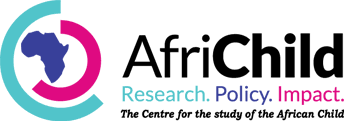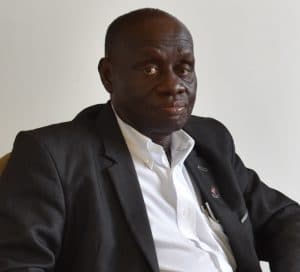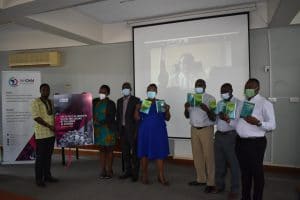The Centre for the study of the African Child (Africhild) has awarded grants to seven Ugandan universities to conduct child-focused research, publish and disseminate their findings. The universities that have been awarded are: Muni; Makerere; Uganda Christian University; Uganda Martyrs University; Kyambogo; Gulu and Nsamizi Institute of Social Development. Africhild has awarded each university UGX 20M for the research activity whose implementation starts July 1 2018 to March 31 2019.
This grants offer comes at the heels of two trainings of university lecturers in child-focused research. The first workshop was conducted between January 22 to February 2nd 2018. The second workshop was held between 18 and 29th June 2018.
Participants received training in data entry and analysis modules and grants writing from a team of expert trainers including Prof. Fred Wabwire-Mangen and Dr. Siu Godfrey of Makerere University and Prof. Rosalind Lubanga of Nsamizi Institute. The second training was mostly characterized by group works where participants refined their research proposals that are to be funded. Some of the researches to be undertaken by each university are:

- Menstrual hygiene knowledge, attitudes and practices in primary schools in Mukono district: A girl child’s perspective. (Uganda Christian University-Mukono)
- Children’s experiences and perspectives on parental and community involvement in their schooling. (Makerere University).
- Examining household socio-economic status and parenting styles on adolescent development (Gulu University).
- A rights-based approach to HIV/AIDS prevention and service utilization by adolescents in Iganga district (Nsamizi Training Institute).
It is envisioned that research findings from the studies done are expected to shape national policies aimed at improving children’s lives such as the National Children Policy which is being reviewed.
This policy is expected to replace the existing National Policy on Orphans and Other Vulnerable Children in Uganda. Joyce Wanican, the Executive Director of the AfriChild Centre says the trainings are significant because it equips university faculty with professional knowledge and skills to enable them conduct child-focused research.
“Articles on child-focused research that will be published by the trained cohort will go a long way in adding to the existing body of knowledge and shape child-focused research in the region,” she says.
Additionally, in order to foster a culture of conducting child focused research, Wanican advises university lecturers to develop open and collaborative relationships among faculty members and to develop partnerships with other universities in order to expand research opportunities. The AfriChild Centre will conduct the third training of university lecturers in January 2019 in a bid to continue reskilling them to carry out child-focused research.





